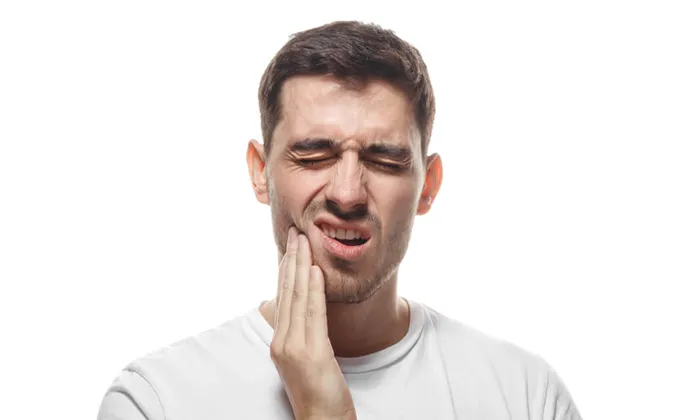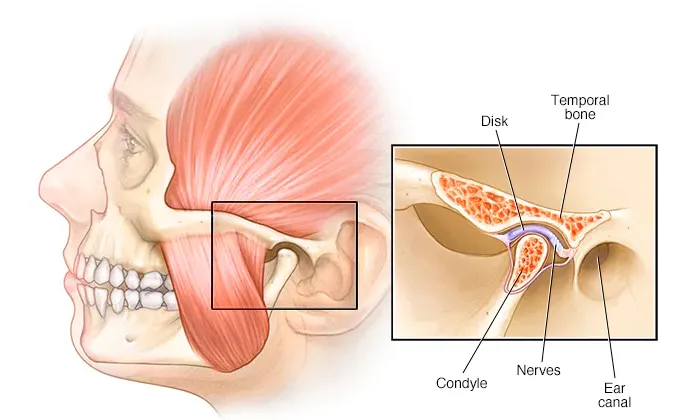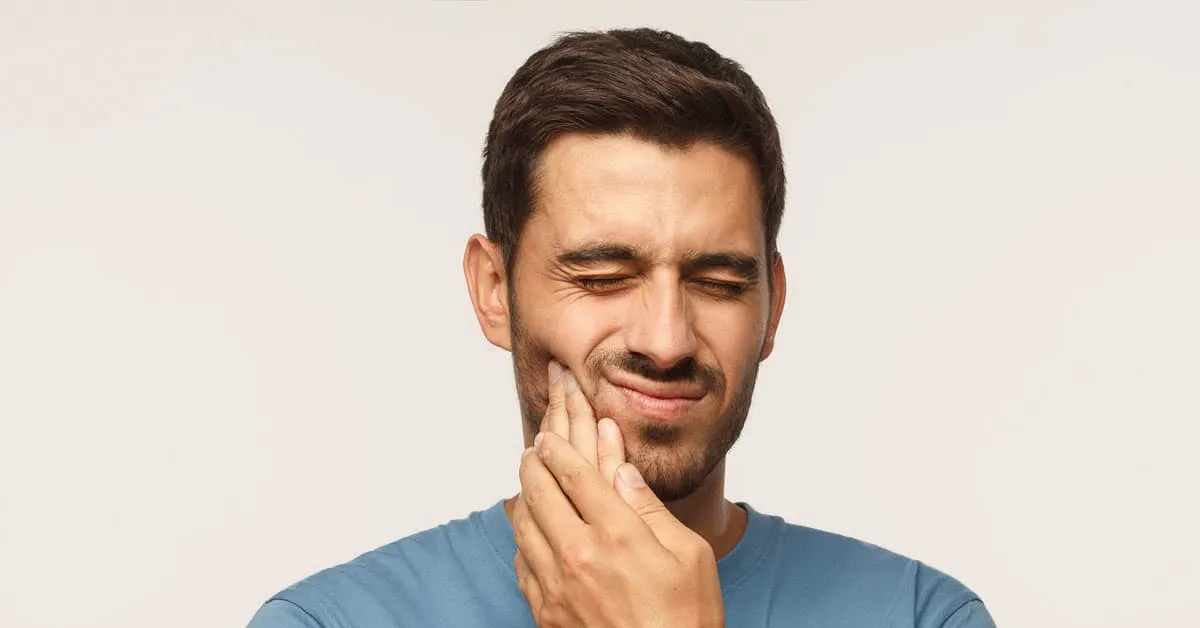As the world becomes increasingly digital, more and more people are turning to headphones as a means of enhancing their audio experience. However, while the benefits of wearing headphones are numerous, some have reported experiencing jaw pain as a result.
This phenomenon has led many to question whether wearing headphones can actually cause jaw pain or if it’s just a coincidence.
In this article, we will delve into the complex relationship between wearing headphones and jaw pain, exploring the perplexity of this topic and the burstiness of the arguments for and against this claim.
Can Headphones Cause Jaw Pain?
Headphones have become a ubiquitous accessory for music lovers, gamers, and professionals alike. However, the prolonged use of headphones can lead to jaw pain, a phenomenon that has been reported by many.
The main causes of headphone-induced jaw pain are multifactorial and may include the pressure of the headphone ear cups on the jaws, the clamping force of the headphones being too strong, or the ear pads being too thin or worn out.
Moreover, pre-existing TMJ disorders can also be exacerbated by prolonged headphone use. To prevent or reduce jaw pain from headphones, one can adjust the headphone fit, choose headphones with smaller ear cups, replace the ear pads with thicker or softer ones, limit usage time, and take breaks in between. In severe cases, consulting a doctor is recommended.

Ways to Prevent Jaw Pain from Headphones
If you’re experiencing jaw pain from wearing headphones, there are several things you can do to prevent it. Here are some ways to stop headphones from causing jaw pain:
Adjust the Height of Your Headphones
Make sure the ear cups of your headphones are leveled with your ears and not resting on your jaws. This can help to reduce the pressure on your jawbone.
Stretch Your Headphones
If your headphones are too tight, try stretching them to decrease their clamping force. Alternatively, consider purchasing headphones with less clamping pressure.
Take Breaks
Limit your headphone usage to no more than an hour at a time, and take breaks in between to rest your ears and jaws.
Use Different Headphones
Consider using on-ear or in-ear headphones instead of over-ear headphones, as they can be more comfortable to use.
Use Thicker Ear Pads
Try using thicker or softer ear pads or use covers or cushions to add more padding, which can provide more cushioning and comfort for your ears and jaws.
Exercise Your Jaw
You can exercise and relax your jaw by doing jaw-strengthening activities, such as opening and closing the jaw or massaging the muscles in the jaw.
Improve Your Posture
Avoid slouching or leaning on your chin, which can put more tension on your jaw. Improving your posture can help to prevent jaw pain from headphones.
Consult a Doctor
If you have symptoms of TMJ disorder, such as jaw clicking, locking, or difficulty chewing, it is advisable to consult an ENT specialist who can prescribe the appropriate treatment.

Reasons Why Headphones Cause Jaw Pain
Wearing headphones can be a great way to enjoy your favorite music or podcast, but it can also lead to pain in your jaw. There are several reasons why headphones can cause discomfort in your jaw, including the pressure they put on your bones and muscles.
Ear Cups Are Resting on Your Jaws
One of the main reasons why headphones can cause jaw pain is that the ear cups rest on top of your jawbone. If the headphones fit too tightly, they can put pressure on your jawbone and cause pain.
The Clamping Force Is Too Strong
Another cause of jaw fatigue caused by headphones is the clamping force being too strong. Wearing headphones for an extended period of time with too much pressure can cause misalignments in your teeth and jaw, leading to pain in your gums and even tooth damage.
The Ear Pads Are Too Thin
Thin ear pads may not provide enough cushioning and can cause the jaw to hit the bottom of the ear pad, which can be painful. In addition, thin ear pads may also start to lose their sound quality over time.
Using Your Headphones for a Longer Period
Extended headphone usage can cause neck and jaw muscles to fatigue over time, leading to weakened tissues and pain in the future.
Have A Pre-Existing TMJ Disorder
Headphones can put a lot of stress on your jaw if you are constantly using them. This stress can worsen a pre-existing TMJ disorder and cause pain.
Poor Posture
Poor posture while wearing headphones can contribute to jaw pain. When we tilt our heads forward to look at a screen, for example, it can cause tension in the neck and jaw muscles, which can lead to pain over time.

Can headphones cause TMJ?
Yes, headphones can cause TMJ (temporomandibular joint disorder) or aggravate an existing TMJ condition. When headphones rest on top of the jaw, they can cause pressure and tension in the jaw muscles, leading to pain and discomfort.
Additionally, if the headphones have a strong clamping force, they can further exacerbate TMJ symptoms.
It is important to take steps to reduce the risk of TMJ, such as adjusting the height and clamping force of headphones, using thicker or softer ear pads, and taking breaks to rest the jaw and ears.
If you have pre-existing TMJ or experience symptoms such as jaw clicking, locking, or difficulty chewing, it is recommended to see a doctor for proper diagnosis and treatment.
What Are the Symptoms Of TMJ?
TMJ or temporomandibular joint disorder is a condition that affects the jaw joint and the muscles that control its movement. The symptoms of TMJ disorder can vary from person to person, but some of the most common ones include:
- Pain or tenderness in the jaw joint, face, neck, and shoulders
- Difficulty opening or closing the mouth
- A clicking or popping sound when you open or close your mouth
- Locking of the jaw joint, making it difficult to open or close the mouth
- Headaches or earaches
- Tiredness or tightness in the jaw muscles
- Pain or discomfort while chewing, talking, or yawning
- Swelling or inflammation on one or both sides of the face
- A feeling that your teeth are not aligning properly or are shifting
- A feeling of dizziness or vertigo.
If you experience any of these symptoms, it is important to consult a healthcare professional for an accurate diagnosis and appropriate treatment.
Tips on Choosing Comfortable Headphones To Prevent Jaw Pain
If you are looking to prevent jaw pain while using headphones, there are some tips to keep in mind when choosing a comfortable pair:
- Look for headphones with a flexible headband that can adjust to the size and shape of your head. This will help distribute pressure more evenly and prevent the headphones from pressing too tightly against your jaw.
- Choose headphones with softer, thicker, and more comfortable ear pads. This will provide better cushioning and support for your ears and help prevent your jaw from hitting the bottom of the ear pad.
- Opt for on-ear or in-ear headphones instead of over-ear headphones with large ear cups. These types of headphones place less pressure on your jaw and distribute weight more evenly.
- Consider using bone-conduction headphones like the Shokz OpenRun Pro, which do not rest on your ears or jaw at all, but rather sit above the ears and use vibrations to send sound directly to the inner ear.
- Try out different brands and models of headphones to find the ones that fit your head and ears comfortably and do not cause any pain or discomfort.
- Lastly, make sure to take regular breaks and avoid prolonged headphone usage to give your ears and jaw time to rest and recover.
Conclusion
headphones can cause jaw pain due to various reasons, including the pressure they put on the jawbone, strong clamping force, thin ear pads, prolonged usage, and pre-existing TMJ disorder.
However, by making a few adjustments and choosing the right headphones, you can prevent or alleviate jaw pain. It’s crucial to take breaks, stretch your headphones, adjust their height, use thicker or softer ear pads, exercise and relax your jaw, and improve your posture.
If you have symptoms of TMJ disorder, such as jaw clicking or difficulty chewing, it’s essential to seek medical advice. By following these tips, you can enjoy listening to music without causing discomfort or harm to your jaw.
- Charging Bluetooth Headphones During Use: Is It Possible? - January 9, 2024
- Why Over-Ear Headphones Best for Hearing Health? (7 Reasons) - December 12, 2023
- Fixing the Bose Earbuds Not Charging in Case Problem: Solutions That Work - November 24, 2023

